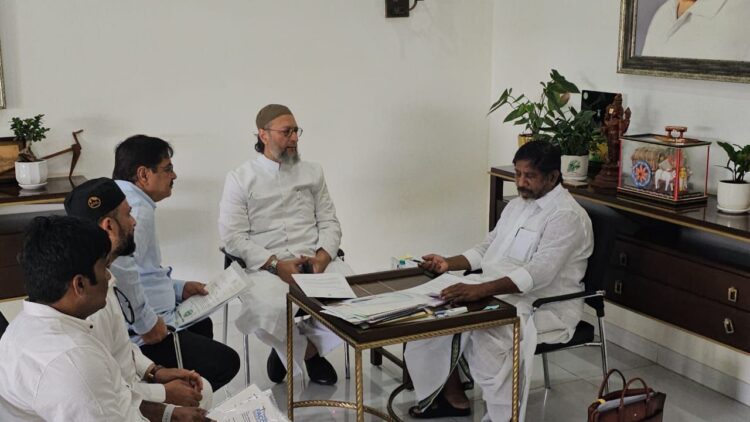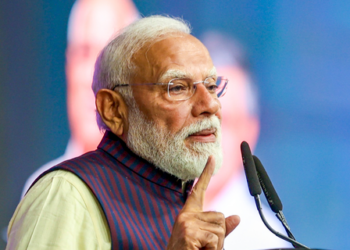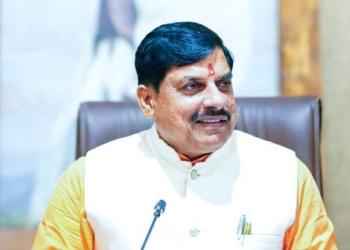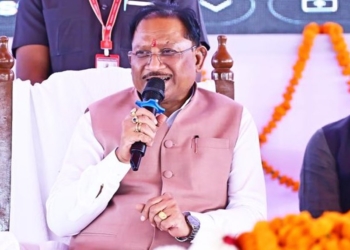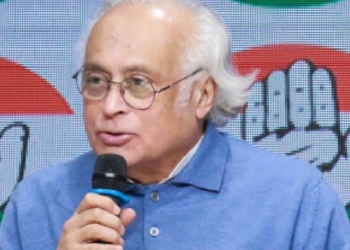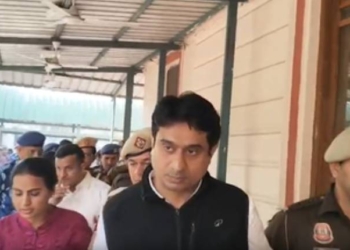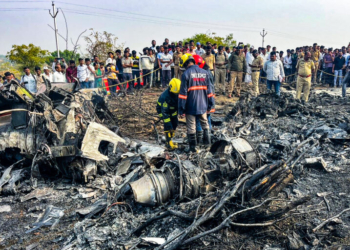Hyderabad: AIMIM President Asaduddin Owaisi said on Monday termed the 130th Constitutional Amendment Bill a grave violation of the theory of separation of powers and claimed that it undermines democracy.
The Hyderabad MP told media persons that the proposed Bill clashes with the Constitution.
“An Article of the Constitution says that the President of India will be aided and advised by the Council of Ministers, while the proposed Bill says the President can remove the Prime Minister. This is clashing with the Article,” he said.
Stating that the executive wants to control the legislature, he expressed the apprehension that the proposed legislation would lead to an “unelected dictatorship” and a “police state”.
He wondered if any President would be able to make a Prime Minister resign.
“Currently, a state government is removed by imposing President’s rule or by passing a no-confidence motion, but if you make this legislation, investigating agencies will remove the government,” he said.
Owaisi stated that in Union Territories, the entire Home Department is in the hands of the Central government and thus, there will be no independence left.
“The Governor is appointed by the Central government. If you arrest 4-5 ministers, the government will fall. Who will control this?” he asked.
He demanded that the government make the investigating agencies independent with no government role.
The MP said if the government is really speaking of morality, will it bring legislation to say that those caught will not join the party which is in power at the Centre?
Owaisi also noted that currently, the executive appoints personnel of investigating agencies. In the police force, from a Sub-Inspector to DGP, all are appointed on the recommendation of politicians on the basis of caste or religion.
Stating that Andhra Pradesh Chief Minister N. Chandrababu Naidu was arrested in a corruption case last year, he pointed out that the case against him is still there. “What if his bail is cancelled and he is sent to jail?” he said.
Owaisi said an investigation agency may also initiate action against a Chief Minister or a minister for not implementing promises made in the election. “Is a Chief Minister or a minister answerable to people or to an investigating agency?” he asked.
Asked about Special Intensive Revision (SIR) of electoral rolls in Bihar, he said it was done in just 97 days, while in 2002-03, the SIR in seven states lasted for 240 days.
He said the voters whose names were there in the voter list were not asked for proof of citizenship, and the EPIC card was given centrality in 2002-03, but now the Election Commission is asking for 11 documents.
He argued that the Election Commission has no mandate to check citizenship, as only the Ministry of Home Affairs is empowered to do it.
Meanwhile, Owaisi met Telangana Deputy Chief Minister Mallu Bhatti Vikramarka and apprised him of the difficulties faced by people in Hyderabad due to the action of the Electricity Department in removing cables of Internet and television service providers.
The Electricity Department’s action, in the wake of the deaths of nine people due to electrocution in four separate incidents during the last few days, has disrupted Internet services.
Owaisi said the Deputy Chief Minister told him that the service providers were earlier given a year’s time to follow the rules laid down for cables, but they failed to complete the work.
Stating that the work was not done in bylanes and slums, he urged Vikramarka to give some time to the service providers.
The MP said the cutting of cables disrupted Internet services, causing severe inconvenience to students, traders and those who work from home.
(IANS)




